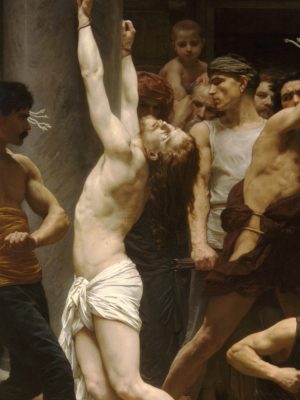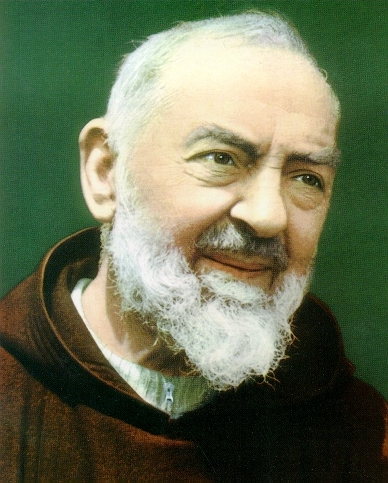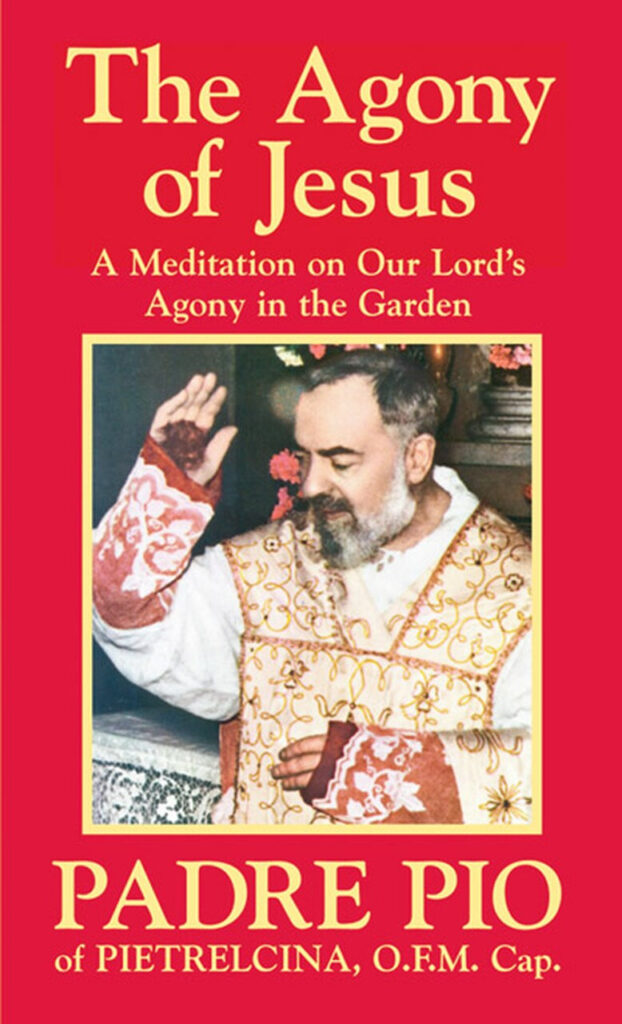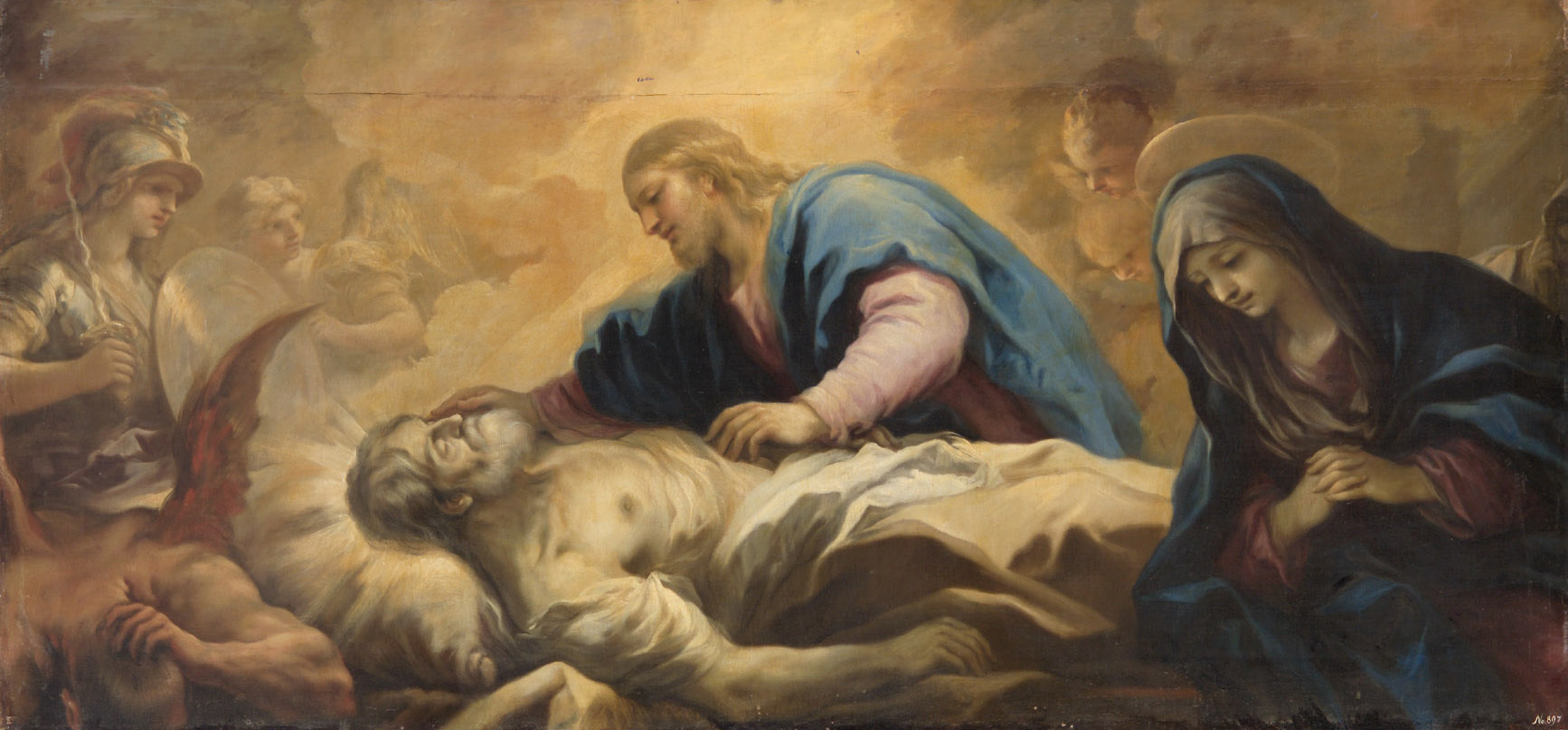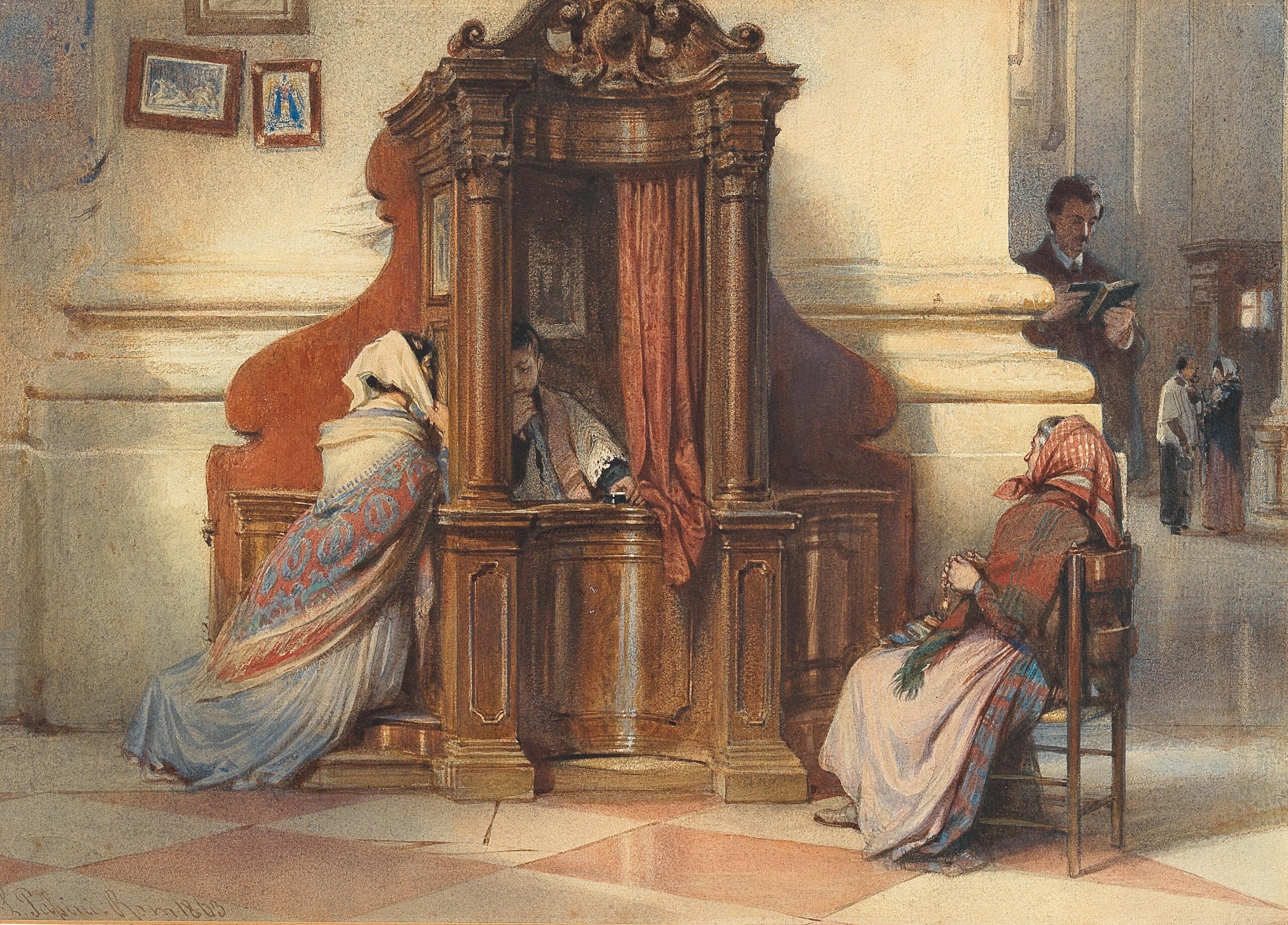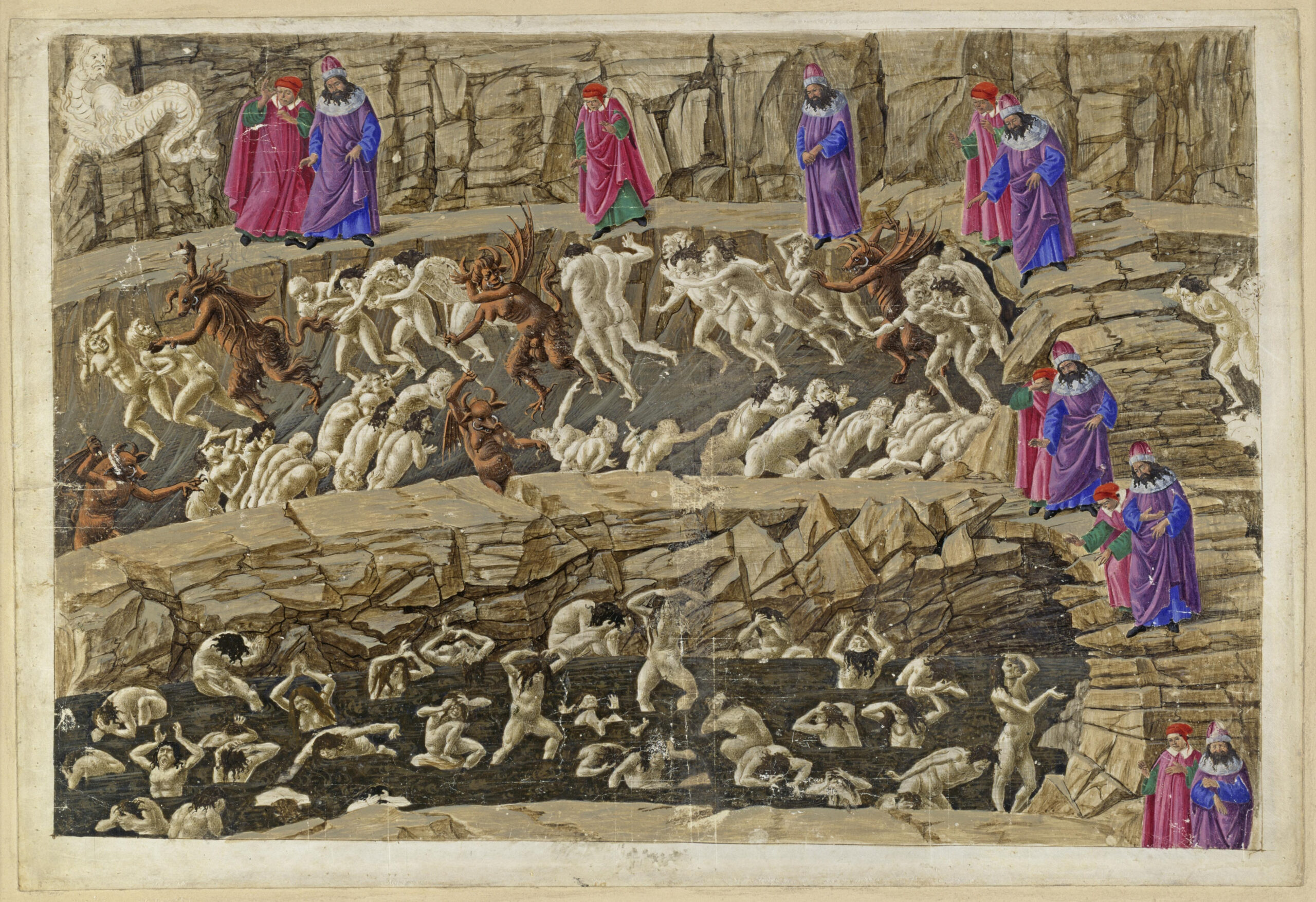Follow along with Saint Padre Pio, a saint who bore the marks of Christ upon his body, as he meditates upon the agony of Jesus in the garden. The following meditation is an excerpt from his The Agony of Jesus: A Meditation on Our Lord’s Agony in the Garden.
Prayer to Enter into the Passion
Most Divine Spirit, enlighten and inflame me in meditating on the Passion of Jesus, help me to penetrate this mystery of love and suffering of a God, Who, clothed with our humanity, suffers, agonizes and dies for the love of the creature! . . . The Eternal, the Immortal Who debases Himself to undergo an immense martyrdom, the ignominious death of the Cross, amidst insults, contempt and abuse, to save the creature which offended Him, and which wallows in the slime of sin. Man rejoices in his sin and his God is sad because of sin, suffers, sweats blood, amidst terrible agony of spirit. No, I cannot enter this wide ocean of love and pain unless Thou with Thy grace sustain me. Oh that I could penetrate to the innermost recesses of the Heart of Jesus to read there the essence of His bitterness, which brought Him to the point of death in the Garden; that I could comfort Him in the abandonment by His Father and His own. Oh that I could unite myself with Him in order to expiate with Him.
Jesus’s Agony in the Garden
Jesus rises and turns His sad and suppliant suffused! He prays to that Father Who seems to have turned away His glance and Who appears ready to strike Him with His sword of vengeance. He prays with all the confidence of a Son, but He fully understands the position He holds. He realizes that it is He alone, as a victim for the human race, Who bears the odium of having outraged the Divine Majesty. He realizes that He alone through the sacrifice of His life can satisfy divine justice and reconcile the creature with the Creator. He wants it, and wants it efficaciously. But nature is crushed at the sight of His bitter Passion. Nature revolts against the sacrifice. But His spirit is ready for the immolation, and He continues the battle with all His strength. He feels Himself cast down but He perseveres in the oblation of Himself.
My Jesus, how can we obtain strength from Thee, if we see Thee so weak and crushed?
Yes, I understand. Thou hast taken all our weakness upon Thyself. And to give us Thy strength Thou hast become the scape-goat. It is to teach us that we must place our trust only in Thee in the struggles of life, even when it seems as if Heaven were closed to us.
Jesus, in agony cries to His Father: “If it is possible, take this chalice from Me!” It is the cry of nature which, weighted down, confidently has recourse to Heaven for assistance. Although He knows that He will not be heard, because He wants it thus, He prays. My Jesus, why dost Thou ask that which Thou knowest will not be granted? SUFFERING AND LOVE.
Behold the great secret. The pain which oppresses Thee urges Thee to seek help and comfort, but the love to satisfy divine justice and give us back to God makes Thee cry out: “Not Mine, but Thy Will be done!” To this prayer Divine Justice exacts the sacrifice necessary to repair the injury to God.
His desolate Heart has need of comfort. The desolation in which He finds Himself, the battle which He is fighting alone, seems to make Him go in search of someone who could comfort Him. Slowly, therefore, He rises from the ground and, staggering takes a few steps. He approaches His disciples in search of comfort. They, having lived so long with Him, they, His confidants, could well understand His internal grief. And with this expectation He goes to comfort for Him.
But oh, what a disillusionment! He finds them buried in profound sleep and feels Himself so much more alone in that limitless solitude of His Spirit. He approaches them and, sweetly turning to Peter, He says: “Simon, dost Thou sleep? Thou who didst protest that thou didst want to follow Me unto death?” And turning to the others He adds: “Could you not watch one hour with me?” The lament of the Lamb destined for sacrifice; of a wounded Heart that suffers immensely . . . alone, without comfort. He, however, raises Himself as if from a battlefield, and forgetting Himself and His sufferings, concerned only for them, adds: “Watch and pray that you fall not into temptation.” He seems to say: If you have so quickly forgotten Me, Who struggle and suffer, at least watch and pray for yourselves.
They, however, heavy with sleep, hardly hear the voice of Jesus, they barely perceive Him as a faint shadow, so much so that they are not aware of His countenance all disfigured from the internal agony which tortures Him.
O Jesus, how many generous souls wounded by this complaint have kept Thee company in the Garden, sharing Thy bitterness and Thy mortal anguish. . . How many hearts in the course of the centuries have responded generously to Thy invitation . . .May this multitude of souls, then, in this supreme hour be a comfort to Thee, who, better than the disciples, share with Thee the distress of Thy heart, and cooperate with Thee for their own salvation and that of others. And grant that I also may be of their number, that I also may offer Thee some relief.
ooo
This article is taken from a chapter in The Agony of Jesus: A Meditation on Our Lord’s Agony in the Garden by St. Padre Pio which is available from TAN Books.


